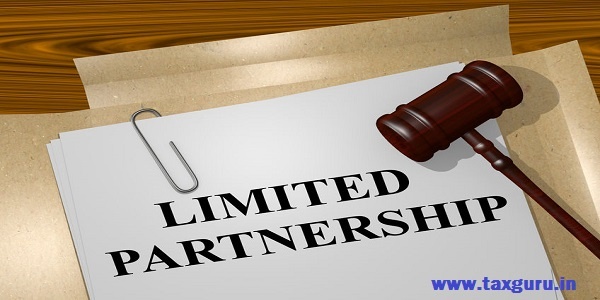Post my article on Conversion of Company into LLP, I was asked lot of question on the tax implication after conversion. I have made an attempt to explain here some provisions related to that. Hope I clarify some doubts.
The LLP is one the popular mode of doing the business in India. The LLP Act has provided to convert a private limited company to LLP. The Income tax Act 1961 also has been amended by inserting the provisions related to such conversion.
When there is transfer, from one person to another person, the transferor has to pay the capital Gain Tax. The income Tax Act has amended by inserting Section 47(xiiib) which does not amount to transfer. The private limited company which is a transferor and the LLP which is transferee has to comply with the below conditions as per that section.
Page Contents
- 1. Section 47(xiiib) – Transactions not regarded as transfer
- 2. Some discrepancies related to Conversion of Company into LLP
- 3. Consequences If section 47(xiiib) is violated:
- 4. Other Interpretation related to Conversion of Company into LLP:
- 5. Cost of acquisition of the asset related to Conversion of Company into LLP:
- 6. Period of holding of asset related to Conversion of Company into LLP:
- 7. Conclusion:-
1. Section 47(xiiib) – Transactions not regarded as transfer
Following shall not be regarded as “transfer”, therefore, no capital gain shall arise on the following items.
Any transfer of a capital asset or intangible asset by a private company or unlisted public company to a limited liability partnership
Any transfer of a share or shares held in the company by a shareholder as a result of conversion of the company into a limited liability partnership in accordance with the provisions of section 56 or section 57 of the Limited Liability Partnership Act, 2008.

Exemption shall be available only if the conversion satisfies all the below mentioned conditions:
According to proviso to section 47(xiiib), the conversion of Private Limited Companies and Unlisted Public Companies into LLP is not taxable subject to following conditions:
(a) all the assets and liabilities of the company immediately before the conversion become the assets and liabilities of the limited liability partnership;
(b) all the shareholders of the company immediately before the conversion become the partners of the limited liability partnership and their capital contribution and profit sharing ratio in the limited liability partnership are in the same proportion as their shareholding in the company on the date of conversion;
(c) the shareholders of the company do not receive any consideration or benefit, directly or indirectly, in any form or manner, other than by way of share in profit and capital contribution in the limited liability partnership;
(d) the aggregate of the profit sharing ratio of the shareholders of the company in the limited liability partnership shall not be less than fifty per cent at any time during the period of five years from the date of conversion; (i.e you can take new partners in the LLP, but all the previous shareholders who became partners in LLP share should remain at least 51% for 5 years from conversion.)
(e) the total sales, turnover or gross receipts in the business of the company in any of the three previous years preceding the previous year in which the conversion takes place does not exceed sixty lakh rupees; and
(f) No amount is paid, either directly or indirectly, to any partner out of balance of accumulated profit standing in the accounts of the company on the date of conversion for a period of three years from the date of conversion.
(g) The total value of the assets as appearing in the books of account of the company in any of the three previous years preceding the previous year in which the conversion takes place does not exceed five crore rupees
Point No (e) which says about Total sales, turnover or gross receipts in the business of the Company which means if the company is into textile business, then sales, turnover and receipts of only that business. However if a company is receiving any other income from any other source then it will not be his business income as his business was into textile. As per my understanding if the turnover from textile if 59 lac and is having other miscellaneous income of Rs 5 Lacs, his total receipts would be of 64 lacs, but business receipts of only Rs 59 Lacs. So the criteria is still fulfilled.
The Exemption is available only to the Capital assets an intangible assets.
Point No (g) which says total value of assets. The term value is not defined which can be book value or fair market value which will be debateable. However as per my understanding since it is specified as value appearing in books of accounts, it should be taken at book value.
Point No (f) which says non distribution of accumulated profits for 3 years. However, if a company has already distributed bonus shares by capitalising the reserves, then the question won’t arise. Hence there is a loop hole
Sec 50D was introduced which says that fair market value of assets is to be taken as full value of consideration if capital gain arises on conversion.
The capital gains shall be computed as given in section 48 according to which capital gain shall be computed by deducting cost of acquisition and expenditure from full value of consideration
There are lot of issues as both the entities are one and the same. However, for transfer there has to be two entities. In this case, only the form of entity is changing i.e from Company t LLP, where there will be no existence in future of Company.
3. Consequences If section 47(xiiib) is violated:
Transfer of capital Assets:
If the above conditions are violated, the transfer of capital asset is to be done at the market rate and accordingly capital gain is to be calculated. The private limited company which is a transferor has to pay the capital gain tax on such transfer.
Transfer of Other Assets:-
The other assets like, stock in trade, current asset etc is also transferred at the market value and the applicable taxes is to be paid.
The shares in the hands of the shareholders of the private limited company will be converted as capital of the LLP. The shareholder will surrender the shares and acquire capital in the LLP. The shareholder has to pay tax on the capital gain arising from to him from such transfer. The Value of capital is the consideration for the transfer of shares. The cost of share is the amount paid by such share holder at the time of purchase of shares. The receipt of bonus share will not have any cost since it is out of the reserves of the company.
There is one more interpretation that, the transfer of Private Limited Company to LLP is not regarded as transfer. Consequently the shareholders who are transferring the share and the person who is receiving the share are the same. Hence there is no capital gain to be paid by the shareholder because one cannot make profit by selling to himself.
Cost of acquisition of the asset shall be deemed to be the cost of acquisition of predecessor company
As per Section 2(42A)(b), for the purpose of determining period of holding of capital asset for determining nature of capital gain, period for which the asset was held by predecessor company shall be included. Hence long term and short term will depend on the total holding period from the date of buying.
7. Conclusion:-
The transactions not in covered under section 47(xiiib) is transfer and accordingly capital gain is paid by both the company and the shareholders. However, Based on the above judicial rulings, and case to case basis, one can opine that the Conversion of Private Limited Company to LLP is not taxable neither for Transferor Company nor for the shareholders.
Content is purely for knowledge sharing. Author can be reached at caswetamakwana@gmail.com or 9819244185.
(Republished with Amendments)






We converted Pvt Ltd to LLP
But Income Tax refund is pending & Bank account was closed. how to claim refund
Read your article dated 20/01/20. Have a query. A Pvt ltd co having share capital of 1 lac and reserves of 50k. 2 shareholders are there. Co is converted into LLP. Is there any restrictions on withdrawal of the capital by the partners to the extent of 1 lac
CAN WE TRANSFER RESERVE AND SURPLUS OF PRIVATE LIMITED COMPANY IN THE AC OF PARTNERS IMMEDIATE AFTER CONVERSION
Point number 4 of the Article was too good. I really was not able to think in such a way. Great analysis.
OFFHAND For a better exposition and appreciation of the matter disccussed, if so wish / provoked, suggest to look through the following write-ups displayed on the same website @
1.Conversion of One Business Entity To Another- Tax Implications
2. Reduction of Equity Share Capital – Tax Implication (A Supplement)
3. Reduction of Equity Share Capital – Tax Implication
courtesy
What will be the taxability if on conversion of Co. to LLP, the stock in trade in Pvt Ltd. Company is transferred to LLP.
There is no option to claim exemption or not to claim exemption. However, there may be a case where exemption would not be available for the treason that one or more conditions of section 47(xiiib) are not fulfilled. In that case the liability to pay capital gain tax shall be that of the Company/ transferor. This shall be provided for before conversion and the this shall be one of the liability transferred to the LLP.
If Private Company is converted into LLP without claiming exemption u/s 47 then please guide
1. who is liable to pay tax , Shareholder or LLP .
2. Sale consideration would be at Market value or Book Value
Please provide complete explanation on the same
Thanks